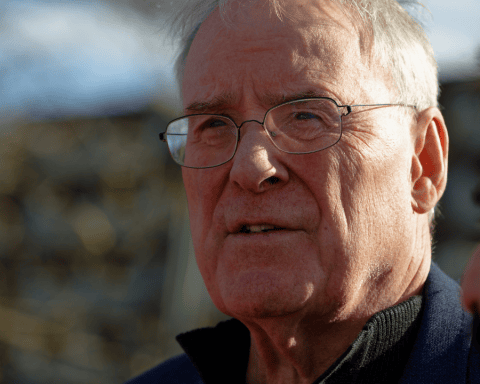The launch of COVID-19 vaccines marks an unprecedented success for global health after many months of uncertainty and suffering. These vaccines were possible only through novel innovation – including new public-private partnerships and other global collaborative platforms – that underpinned their development. Although there is much to do before we exit the crisis, we can learn from the innovation models we’ve seen so far – and use them to bolster a greener recovery and address future crises.
Lesson 1: The power of public research funding
As the world seeks to build back greener from the economic downturn triggered by the pandemic, we need to recognize the hard-learned lessons of funding early-stage technology. Governments and non-profit organizations have devoted CAD$14 billion to COVID-19 vaccine development and testing. These public investments lowered risks for private investors, unlocking much-needed capital from the pharmaceutical sector.
Today, global R&D spending as a whole has reached a record high of almost US$1.7 trillion, with the vast majority of that sum coming from the private sector in the form of short-term investments like product development or digital apps. Solving broader societal problems typically involves long-term investments in higher-risk emerging technologies, but the private sector rarely takes such risks.
Most technological advances occur in publicly funded universities and, to an extent, national labs. Historically, it has been notoriously difficult to translate discoveries from the lab to the marketplace – especially in capital-intensive sectors – as the private sector is reluctant to invest in unproven technology. The last cleantech boom from 2006 to 2011 ended in a bust, with venture capital firms losing more than half the $25 billion invested in clean-energy technology start-ups. Cleantech has since matured and last year outperformed other sectors, doubling its worth on the TSX from 2019 to 2020. However, the mounting urgency of the climate crisis demands strong public-sector commitment in early-stage cleantech, which requires cutting-edge equipment, manufacturing of prototypes, and years of development from invention to impact.
Lesson 2: Use collaborative platforms as a vehicle
The COVID-19 innovation push highlights how governments around the world are investing in collaborative platforms that aim to promote cooperation across the public, private and sometimes philanthropic sectors. These platforms pool facilities, data and training to accelerate the development of nascent industries and disruptive technologies.
A recent OECD (Organisation for Economic Co-operation and Development) report examined collaborative platforms for advanced materials used in next-generation electronics such as flexible LED lights or clean energy like new batteries and found a few critical success factors. Sharing of open-access data and equipment can create a community around a technology, cross-pollinate creative ideas, and train a diverse and robust workforce. These platforms can have varying degrees of involvement from industry, academia and government. For example, the Materials for Clean Fuels Challenge program links national labs, academics and cleantech start-up companies to rapidly develop disruptive technologies like hydrogen and carbon conversion to decarbonize Canada. Publicly funded R&D should be used to support these collaborative platforms to ensure that benefits are shared by all, rather than monopolized by one organization.
Lesson 3: The importance of international cooperation
Lastly, these platforms must transcend national borders to be effective. The push for a COVID-19 vaccine has underscored the importance of international collaboration, and the threat that national silos and vaccine nationalism pose to public health and well-being. There are excellent examples, such as the Access to COVID-19 Tools (ACT) Accelerator by the World Health Organization, which has raised US$5.6 billion to accelerate technologies in diagnostics, therapeutics and vaccines. This includes COVAX, an international effort to ensure equitable access to vaccines that includes the building of manufacturing facilities.
In the context of clean energy, Mission Innovation is a global initiative of 24 countries and the European Commission focused on accelerating innovation in cleantech through increased R&D funding of member states. Canada currently leads two efforts on sustainable biofuels and clean energy materials. However, most Mission Innovation activities to date have been focused on coordination and promoting increased funding within national borders. For the next phase of Mission Innovation, Canada could double down with partners to establish international joint R&D facilities that pool resources in the fight against climate change.
In today’s digital world, the right infrastructure makes it easier than ever for people to connect. Yet as technology continues to erode physical barriers, waves of populism and nationalism are strengthening social and political barriers. We need to identify common challenges, invest in the pre-competitive innovation platforms to address these challenges, and work to ensure fair access to these solutions.
Whether it’s a global pandemic or the threat of climate change, these problems do not discriminate – they know no borders and affect us all. A diverse group of actors across the world and across the public and private sectors pooled their resources and collaborated in new ways to develop a COVID-19 vaccine. We should learn from their experiences to tackle the other global challenges knocking furiously at our doorstep.
Phil De Luna is a Toronto-based carbontech innovator and a director at National Research Council Canada, where he develops disruptive technologies to decarbonize Canada. Views expressed here are his own and not those of the NRC.
David Winickoff is a Paris-based senior policy analyst at the Organisation for Economic Co-operation and Development (OECD), where he leads work on the responsible development of emerging technologies. Views expressed here are his own and not those of the OECD.





